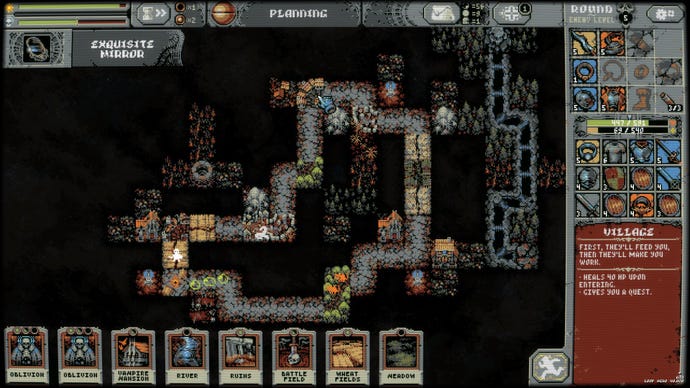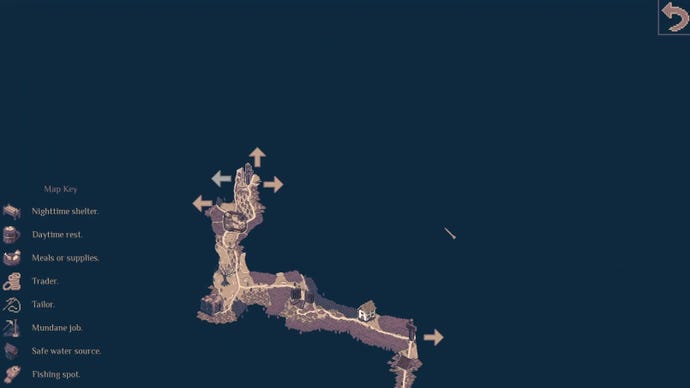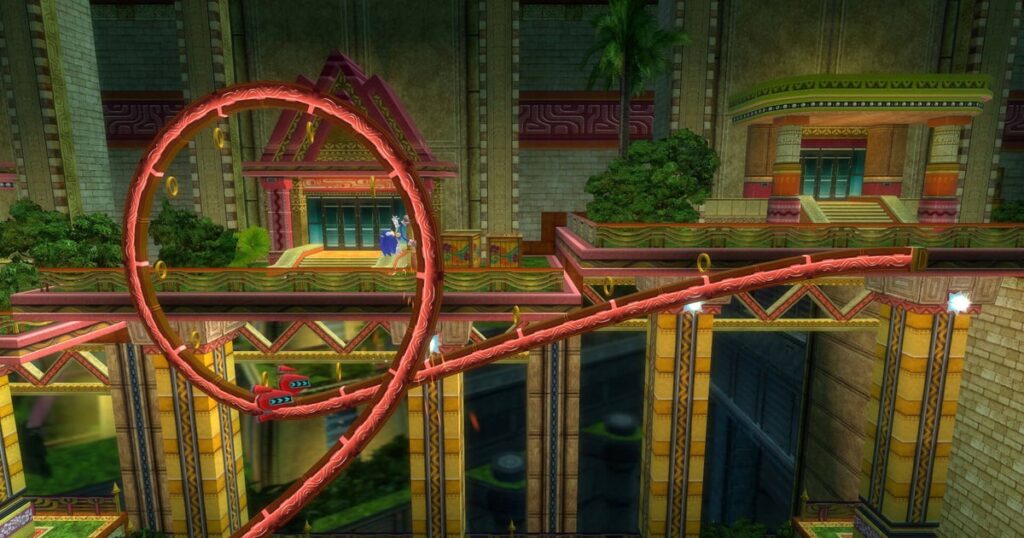Video games are full of loops. In many cases, the loop is not just a loop of space, but also a loop of labor, a loop of time. This is a recurring task with some variation from cycle to cycle, and is usually tied to some kind of character progression system. A classic is the town and dungeon loop of action RPGs such as Diablo 4. Armed with sword and shield, he takes to the depths, slaughters hordes of innocent goblins, and then returns triumphantly to the village square, ready 24/7. An adventurer's guild with a lively forge. Then leave again with a sword +1 and a shield with a goblin his magnet. Multiplayer has a direct equivalent, especially since Call Of Duty 4: Modern Warfare – sign in, play some matches, earn XP, unlock new laser sights, etc. Equip it and play a few more matches with +5% to suit your objectives.
These challenge-reward loops are often beautifully crafted and immersive to think about. Consider Overwatch, or at least the game that used to be Overwatch. Here, loops are registered at the soundtrack level. I've always loved how the loud lobby themes in Overwatch are uplifting and flow from one thing to the next. It starts while you're selecting a character, spills into the safe room, culminates again when the shooting starts, builds to its final height during the end of the game, and then melts away… Then it rolls up again. It's a very elegant structure, it's a lot of fun, and it's always cheering you on to the next game. But this kind of loop can, of course, also be paralyzing, reductive, and predatory. It's a habit-forming device that degrades the act of play into a kind of commute, making it more amenable to reward structures that can overlap with things like microtransaction systems. That is, a loop can become a snare.
Watch on YouTube
That's why I'm very interested in games that implement loops in more significant ways. The obvious one is Loop Hero. It's an exotic reinterpretation of a roguelike or roguelite. This is one of the funniest things in the video game genre, with the city and dungeon loops being rituals of reincarnation, or rather procedural generation, weaving out a slightly different world each time. Loop Hero challenges players by stitching together maps as they move along a single circular path, gaining resources from initial encounters and spending them on terrain tiles that create fresh hazards, resources, and alchemical possibilities. Bring that ritual to the surface. Enhance your exploration hero to suit you.
In theory, this is as draining and depressing as some of the more overtly exploitative and obsessive reward loops available in RPGs that feature a lot of monetization, but the point is is that Loop Hero is transparent about it and can participate in it structurally. Many games aren't like that. Loop is a top-down pixel art toy that you can explore and play with. This is something that can be redesigned, optimized, or rendered inoperable by popping off too many spider cocoons or whatever you have on the final turn. Designers offer loops as a tool for thinking rather than coiling you.

Still, it doesn't have the looping grandeur of Roadwarden (beware of mild spoilers ahead). I've praised the game's magic and approach to money, and now I'd like to give a big shoutout to the cleverness of its world map. This world map is also roughly composed of a single circular road. It takes a while to realize there's a loop because you have to view the Lord Wardens map section by section. Once you play it, it takes a while to realize that despite the game's aversion to grind and busywork, there are traces of Diablo's cunning in its design. For example, in a river where you can set up a net, you will return to the river on your next lap to collect fish for sale elsewhere. While this monetization process is never the central driving force of Roadwarden, it's still interesting to know that what at first glance seems like a thick specimen of a visual novel actually has some things in common with a loot game. , I was silently tickled. Service RPG.
Lordwarden's Loop encompasses a desolate wasteland inhabited by deadly mythical creatures, with no permanent settlements or clear paths. It creates a vivid and densely imaginative yet eerily empty and visually recalcitrant setting, a centrifugal geography with a dark core (yes, this is largely due to imperialism). and colonialism). Even when he tries to venture into the wilderness, he can only see one region at a time and flip through it like a page. This area always appears impenetrable from the outside.

Aureus of Moral Anxiety, the creator of Roadwarden, told me earlier this year, “We wanted to have this white space in the middle and push it to the side.” As the self-contradictory description of the “void'' that “pushes you aside'' suggests, the wilderness is both repellent and alluring. At first, you'll be seduced by what lurks there, such as vanished adventurers, legendary bandits, giant cats, and dragons. But once you've mastered the Lord Wardens loop and winter approaches, your motivation for visiting the wilderness becomes more Diablo-like in emotion and efficiency. Discovering your way to the other side and gathering all the knowledge and equipment you need for your journey will save you valuable time as you near the end. In other words, part of Roadwarden's genius is that it gives you yet another videogame loop of him and encourages you to slowly and gracefully traverse it.


